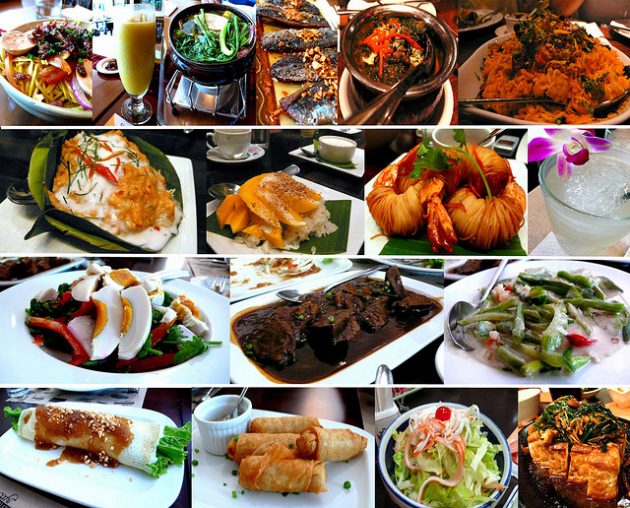Once upon a time studying nutrition was a simple matter. In 1747, the Scottish doctor James Lind decided to find out why so many sailors suffer from scurvy, a disease that leads to exhaustion and anemia, bleeding gums and tooth loss. So Lind created the first clinical study of 12 patients with scurvy.
The sailors were divided into six groups, each had a different treatment. People who used lemons and oranges, eventually recovered. An irrefutable result, which revealed the cause of the disease, that is, the lack of vitamin C.
Approximately so solved the problems of nutrition in the pre-industrial era. Many significant diseases for that time, such as pellagra, scurvy, anemia, endemic goiter, appeared as a result of a shortage of food in a particular element. Doctors put forward hypotheses and experimented, while the experimental way did not find the missing part of the puzzle in the diet.
Unfortunately, now it is not so easy to learn a full-fledged diet. During the twentieth century, medicine has learned to cope with most diseases caused by an unbalanced diet. In developed countries, for most residents this is no longer a problem.
Over-eating has become the biggest problem today. People consume too many calories and low-quality food, which leads to chronic illnesses, such as cancer, obesity, diabetes or cardiovascular disease.
Unlike scurvy, these diseases are so easy not to kill. They do not appear sharply overnight, but develop over the years. And buying a crate of oranges from them does not work. It is necessary to study the entire diet and lifestyle of the patient in order to weed out all the risk factors that lead to the disease.
So the science of nutrition became inaccurate and confusing. A sea of contradictory studies has appeared, in which a lot of inaccuracies and limitations are easily revealed. The confusion in this area leads to the fact that advice about nutrition is only confusing. Scientists can not agree on anything, they protect tomatoes from cancer or provoke it, useful or harmful red wine and so on. Therefore, journalists writing about nutrition often sit in a puddle, describing the next report.
To roughly imagine how difficult it is to study nutrition, Julia Belluz (Julia Belluz) interviewed eight researchers. And that’s what they told.
To search for answers to general nutrition questions, randomized trials are meaningless

The gold standard of evidence-based medicine is a randomized controlled trial. Scientists recruit test, and then randomly distribute them into two groups. One receives the medicine, the other receives the placebo.
The point is that due to a random sample, the only significant difference between the groups is taking the drug. And if the results of the studies differ, it is concluded that the cause in the medicine (just so Lind calculated that fruits cure scurvy).
The fact is that for most of the most important questions about nutrition this approach does not work. It is too difficult to assign different diets to several groups, which will be strictly followed for a long time to determine which food affects which disease.
In an ideal world, I would take 1,000 newborn babies for study, divided them into two groups. To feed one group only with fresh fruits and vegetables until the end of life, and the other with bacon and fried chicken. And then I would measure which group was more likely to have cancer, heart disease, who would have aged and died before, who would be smarter and so on. But we would have to keep them all in jail, because there is no other way to get 500 specific people to try nothing but vegetables and fruits.
Ben Goldacre (Ben Goldacre), a physiologist and epidemiologist
It’s wonderful that scientists can not imprison people and forcibly keep them on a diet. But this means that the existing clinical studies are littered and unreliable.
Take, for example, one of the most expensive and large-scale studies of the Women’s Health Initiative. Women were divided into two groups, one of which adhered to a regular diet, and the other – a diet low in fat. It was supposed that the subjects would eat for several years.
What is the problem? When the researchers collected the data, it turned out that no one was following the recommendations. And both groups end up eating the same.
Billions were wasted, and the hypothesis was never verified.
Walter Willett (Walter Willett), physiologist, nutritionalist from Harvard University
Strict, randomized, placebo-controlled trials can be conducted in a short time. Some studies of nutritional supplements allow the placement of subjects in the laboratory for several days or weeks and monitor all that they eat.
But such studies can not say anything about the effects of prolonged diets, which can be adhered to for decades. All that we can learn is fluctuations in the level of cholesterol in the blood, for example. Researchers make only assumptions that in the long run something will affect health.
Researchers have to rely on observational data, in which there are complete unknown variables
Instead of randomized studies, scientists have to use observational data. They are held for years, they involve a huge number of people who already eat the way that researchers need. Periodically, among them, checks are conducted to identify, for example, the development of cancer or cardiovascular disease.
So scientists learn about the dangers of smoking or the benefits of physical education. But because of lack of control, as in experiments, these studies lack precision.
Let’s say you are going to compare people who, for decades, have consumed a lot of red meat, and people who prefer fish. The first snag is that these two groups can differ in other parameters. No one even distributed them in a random order. Maybe, fish lovers have higher income or education better, maybe they are more self-conscious. And it is just one of these factors that will have an impact on the results. And maybe lovers of meat smoke more often.
Researchers may try to control these attendant factors, but to track them all is unrealistic.
Many diet studies rely on polls

Many observational (and not only) studies rely on survey data. Scientists can not stand by the shoulders of each person for decades and watch what he eats. We have to ask.
There is an obvious problem. Do you remember eating yesterday for lunch? Crumbled nuts in a salad? And then something to eat? And how many grams did you eat this week for chips?
Most likely, with the necessary accuracy you will not be able to answer these questions. But a huge amount of research uses such data: people themselves tell what they remembered.
When the researchers decided to test these nutrition-based nutrition assessment methods for the Mayo Clinic Proceedings magazine, they found that the data “are fundamentally wrong and hopelessly corrupted.” After examining an almost 40-year national study of the health and nutrition of the population, which was based on independent diet reports, scientists concluded that the stated number of calories, spoken by 67% of women, can not physiologically correspond to objective data on their body mass index.
Maybe it happened because everyone is lying and giving those answers that will endorse public opinion. Or maybe the memory fails. Whatever the reason, the researchers from this is not easier. We had to create protocols that take into account some errors.
I need a camera, stomach and intestinal implants, as well as a device in the toilet that will collect all your discharges, instantly process them and send information about their full composition.
Christopher Gardner (Christopher Gardner)
Christopher Gardner, a researcher at Stanford, says that in some studies, he provides participants with food. Or it attracts nutritionists who closely monitor the diet of the subjects, checking their weight and health to confirm the purity of the experiment. He calculates an error that can be taken into account when analyzing other results.
But researchers dream of better instruments, such as sensors that fix chewing and swallowing movements. Or trackers that will display the movement of the hand from the plate to the mouth.
All different. Both people and products

As if there were few problems with the accuracy of the data … Scientists learned that different bodies react differently to the same food. This is another factor that makes it difficult to study the effect of the diet on health.
In a recent study published in the journal Cell, Israeli scientists watched 800 participants during the week, constantly collecting data on blood sugar levels to understand what response in organisms is caused by the same food. The reaction of each person was individual, this allowed us to assume that universal recommendations on the composition of the diet are of limited benefit.
It is clear that the influence of nutrition on health can not be considered only from the point of view of what a person uses. Much depends on how nutrients and other bioactive components of food interact with the genes and microflora of the intestine of each individual.
Rafael Perez-Escamilla (Rafael Perez-Escamilla), professor of epidemiology and public health at Yale University
We will complicate the problem. Foods that seem to be the same, in fact, differ in the composition of nutrients. Local carrots grown on the farm will contain more useful substances than carrots of mass production, which lies on supermarket shelves. A hamburger from a snack bar will contain more fat and sugar than a homemade. Even if people will report what they ate, the difference in the composition of products will still influence the result.
There is also the problem of replacing food. When you start using one product in large quantities, you will have to limit the use of something else. So if a person decides to stick to a diet rich in, for example, legumes, he will most likely eat less red meat and poultry. The question arises, but what influenced the results more: beans or refusal of meat?
The latter problem is vividly illustrated by studies of fat in the diet. When scientists looked at a group of people who were on a diet low in fat, they found that much depends on what fatty foods were replaced. Those who instead of fat began to use sugar or simple carbohydrates, eventually suffered from obesity and other diseases in the same amount as people who consumed a lot of fat.
Conflict of interest – the problem of nutrition research
There is one more difficulty. Today, the science of nutrition can not count on government funding. This creates an extensive field for sponsorship by private companies. Simply put, food and beverage manufacturers pay a huge amount of research – sometimes the results are questionable. And the legislative sphere of nutrition is not as rigidly regulated as medicine.
So many studies are sponsored by manufacturers, that professionals and consumers can doubt even the basic principles of healthy eating.
Marion Nestle
Paid research tends to results that are beneficial to sponsors. For example, of the 76 sponsored studies conducted between March and October 2015, 70 made the conclusions that the food producers needed.
“Basically independent studies find a connection between sweet drinks and poor health, and those for which the soda manufacturers paid for, do not find,” Nestle writes.
Despite everything, the science of nutrition is alive

Difficulties in the study of nutrition create the feeling that learning something unambiguous about the effect of the diet on health in general is unrealistic. But this is not so. Researchers for years use all these imperfect tools. A slow and considerate approach justifies itself.
Without these studies, we would never have known that the lack of folic acid during pregnancy leads to the development of fetal malformations. We would not know that trans fats negatively affect the heart. We would not know that soda in large quantities increases the risk of developing diabetes and fatty liver disease.
Frank Hu (Frank B. Hu), professor of public health and nutrition, Harvard University
The researchers described how they determine what data to trust. In their opinion, it is necessary to evaluate all available studies on one issue, rather than single reports.
They also recommend looking at different types of research that are devoted to one subject: clinical studies, observational data, laboratory studies. Different works with different introductory, different methods, leading to the same results, is an objectively good indicator that there is a link between the diet and changes in the body.
It is necessary to pay attention to the source of research financing. Independent are spent on money from state and public funds, they cause more confidence, in part because the research plan has fewer restrictions.
Good researchers never say that they have found a superfood, and they do not advise to completely abandon a product, do not make bold statements about the effects of consuming a particular fruit or type of meat, limited to the assumption that a particular diet can be useful.
These tips reflect the consensus of a group of researchers who recently discussed nutrition and health. Here are the conclusions of their meeting:
A healthy diet consists of a large number of vegetables, fruits, whole grains, seafood, legumes, nuts, low amounts of fat; Also, one should observe moderation in the use of alcohol, red meat and processed meat products. And there is also less sugar and processed grain. It is not necessary to completely abandon any group of products or adhere to a strict diet to achieve a positive effect. You can combine products in a variety of ways, making the diet balanced. The diet should take into account individual needs, preferences and cultural traditions.
Claims that cabbage or gluten, for example, kill humanity, can not be called the voice of science. Because, as we understand, science just can not prove anything.
